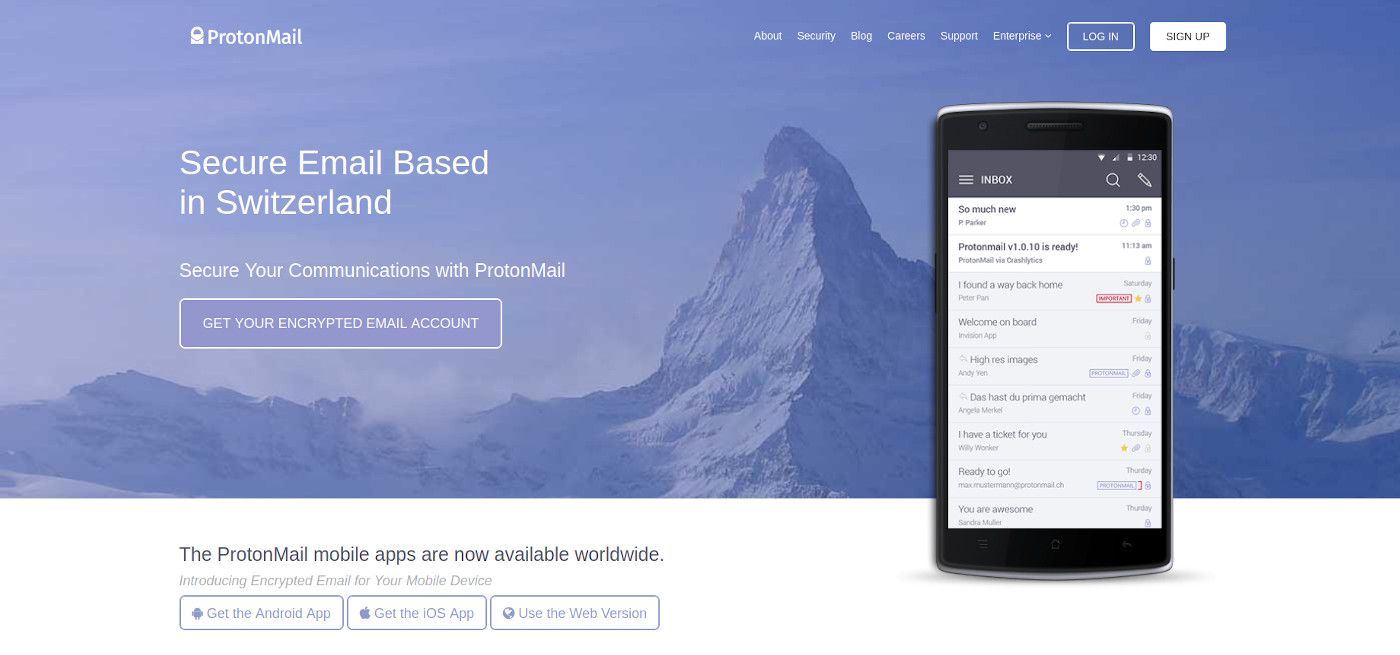When Gmail appeared in 2004 you could only create an account with an invitation; it promised infinite storage space and an innovative and fast web interface, there were many of us who wanted a coveted invitation, at that time there were no alternatives to Gmail that offered the same.
Eventually a stranger sent me an invitation and I was very happy with my brand new inbox, not only that, I was grateful to use such a well achieved product at no economic cost from a company that trumpeted “don’t be evil”.
Many years have passed since then and much has changed the web, Google and me. Now this company has access to what we search, our email, our contacts, our location, the applications we use and a very long etcetera.
It is also clearer to me that nothing is free on the internet, using the products of the online giants does have a cost and it is YOUR data; but this cost is very well hidden in long and ever changing privacy policies.
“We Know Where You Are. We Know Where You’ve Been. We Can More Or Less Know What You’re Thinking About.” – Eric Schmidt, Google.
So last year I started looking for alternatives to Gmail and although it was a more complex task than I thought, I arrived at a choice that I am satisfied with.
Alternatives Replacements for Gmail
The two alternatives below have several points in common and either of them would be an excellent substitute for Gmail. In the conclusion I will tell you which one I chose.
1. Tutanota.
Tutanota is a relatively small German company with several years of providing secure email services. It has a more activist feel towards free/open source software and online privacy. The advantages I would highlight of their service are:
1. Encryption. Tutanota encrypts the transmission and storage of your email (password + bcrypt and SHA256), but all this process happens in the background, so it does not affect the user experience and looks like any other email client.
“Dance like no one is watching. Encrypt like everyone is.”
2. No advertising. Its business model does not involve “sharing” your data with third parties.
3. Android App available on F-Droid. Which shows their concern for the free/open software community and a step forward in the process of de-Google-izing you.
4. It is not from Google. Therefore they do not have the ability to track what you search for or the websites you visit. The information they have about you is your emails (and they are already encrypted).
5. Affordable price / “Free”. It has a free and functional version, enough for a personal account and escape from the big technology companies; but to get all the features that make it a complete mail system, its Pro version has a very affordable price (at this moment, 1 euro per month).
6. Well-designed graphic interface and dark mode; both in the web version and in the app.
7. Located in Germany, under more advanced online privacy legislation, especially when compared to that governing Google.
8. Your own domain. Tutanota Pro offers the service of “aliases” with your own domains; you can even create a catch-all for each domain.
2. ProtonMail.
ProtonMail is a Swiss company also dedicated to providing secure email services. They are, perhaps, the most popular alternative in this type of services and some of its advantages are:
1. Encryption. ProntoMail encrypts the transmission and storage of your email (password + AES-256 and RSA), but without neglecting the ease of use and a clear and easy to use interface.
2. Without advertising and therefore without the need to collect and share your information.
3. They have their own VPN service. They have a VPN service, which can be very attractive for many people; but it goes back to the paradigm of leaving the email service and browsing history with the same company.
4. Open source (but not libre). Its web client and VPN application are open source, however, its Android application is not on F-Droid.
5. It is not from Google. Which is a must if you are looking for a little more privacy.
6. Under Swiss legislation. Which is considered relatively privacy friendly.
Conclusion
Both Tutanota and ProtonMail are two excellent alternatives to Gmail, or rather, replacements for Gmail, both in terms of functionality and privacy, both for personal and business use. In the end I chose Tutanota; mainly because of its activist nature and its openness to recommendations to improve its service.
I started with a free account, to test if it was possible to replace that Gmail account I had been dragging around for more than 10 years, and I realized how much these alternatives have evolved; that it is no longer necessary to sacrifice functionality or aesthetics to get a little privacy. In the end you decide how you pay for your email service: with your data or one euro a month.





